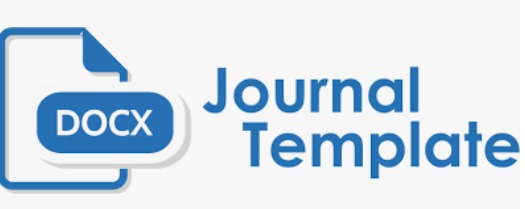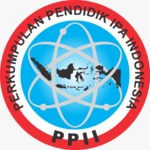View On Science and Education (VOSE): Studi Terhadap Mahasiswa Program S1 IPA-Fisika
DOI:
https://doi.org/10.29408/kpj.v4i2.2873Keywords:
VOSE, VOSE Profile, Science-Physics StudentsAbstract
This study aims to examine the concept of the nature of science (NOS) and attitudes towards teaching the NOS. The research used the View on Science Education (VOSE) instrument that was developed by Chen (valid and reliable) which online distributed to students of Physics Education Program from Surabaya State University and IKIP PGRI Pontianak, as well as students of Science Program from IAIN Ponorogo. The survey research method was conducted to determine the profile of students’ views on the NOS and science education. Respondents who filled out the research questionnaire were 102 students. Based on the survey results, the VOSE profile was obtained that the Science-Physics students had difficulty conceptualizing the general picture of VOSE because in some aspects of NOS it appeared that students experienced confusion.Science-Physics students have a positive attitude towards teaching NOS in terms of tentativeness, aspect of the nature of observation, as well as aspect of theory and law.However, Science-Physics students have negative attitudes towards teaching NOS in the aspect of the scientific method. Thus, the implication of this research requires that Science-Physics students learn and further research about the concept of NOS in order to have a correct understanding.
References
Abd-El-Khalick F. dan BouJaoude S. 1997. An Exploratory Study of the Knowledge Base for Science Teaching. Journal of Research in Science and Teaching, 34, 673, https://doi.org/10.1002/(SICI)1098-2736(199709)34:7%3C673::AID-TEA2%3E3.0.CO;2-J
Abd-El-Khalick F. dan Lederman N.G. 2000. Improving Science Teachers’ Conceptions of Nature of Science: a Critical Review of the Literature. International Journal on Science Education, 22(7), 665, https://doi.org/10.1080/09500690050044044
Abd-El-Khalick F., Lederman N.G., Bell R.L., Hall R., dan Street E. 2002. J. Res. Sci. Teach.12 267
Bell R.L. 2008. Best Practices in Science Education Teaching the Nature ofScience: Three Critical Questions. (Hampton-Brown: National Geographic Learning/Cengage).
Bilican K., Tekkaya C., dan Cakiroglu J. 2012. Pre-Service Science Teachers' Instructional Planning for Teaching Nature of Science: A Multiple Case Study. Procedia-Social and Behavioral Sciences, 31, 468, doi:10.1016/j.sbspro.2011.12.088
Chen, S. 2006. Development of an Instrument to Assess Views on Nature of Science and Attitude Toward Teaching Science. Science Education, 90, 803-819, https://doi.org/10.1002/sce.20147
Chen, S. 2006. Views on science and education (VOSE) questionnaire. Asia-Pacific Forum on Science Learning and Teaching, 7(2)
Jain J., Lim B.K., dan Abdullah N. 2013. Pre-service teacher’s conceptions of the Nature of Science. Procedia-Social and Behavioral Sciences, 90, 203-210, doi:10.1016/j.sbspro.2013.07.083
Jauhariyah, M. N. R., Rohmah, S.N., dan Permatasari, N.Y. 2020. The Students’ Understanding Profile on Nature of Science (NOS) of Physics. Journal of Physics: Conference Series, 1491, 012056, doi:10.1088/1742-6596/1491/1/012056.
Jiang F. dan McComas W.F. 2014. Analysis of Nature of Science Included in Recent Popular Writing Using Text Mining Techniques. Science and Education, 23(9), 1785
Lederman N.G. dan Lederman J.S. 2004. Revising Instruction to Teach Nature of Science. The Science Teacher, 71(9), 36.
Lederman, N.G. 1992. Students’ and teachers’ conceptions of the nature of science: A review of the research. Journal of Research in Science Teaching, 29, 331-359, https://doi.org/10.1002/tea.3660290404
McComas W.F. 1996. Ten myth of science: Reexamining what we think we know about the nature of science. School Science and Mathematics, 96, 10-16.
McComas W.F. 2015. The Nature of Science & the Next Generation of Biology Education. The American Biology Teacher, 77(7), 485-491.
Mıhladız G. dan Doğan A. 2014. Science Teachers’ Views about NOS and the Place of NOS in Science Teaching. Procedia-Social and Behavioral Sciences, 116, 3476-3483, doi: 10.1016/j.sbspro.2014.01.787.
OECD. 2013. PISA 2015 Draft Science Framework. https://www.oecd.org/pisa/pisaproducts/Draft%20PISA%202015%20Science%20Framewor
k%20.pdf
OECD. 2015. PISA 2015 Results in Focus. http://iave.pt/images/FicheirosPDF/Estudos_Internacionais/PISA_2015_Focus_v6.pdf
Sangsa-ard R, Thathong K, and Chapoo S 2014 Procedia-Social and Behavioral Science Volume 116 No. 381
Schleicher, A. 2019. PISA 2018 Insights and Interpretations.
https://www.oecd.org/pisa/PISA%202018%20Insights%20and%20Interpretations%20FINA
L%20PDF.pdf
Sumranwanich W. dan Yuenyong C. 2014. Graduate students’ concepts of nature of science (NOS) and attitudes towards teaching NOS. Procedia-Social and Behavioral Sciences, 116, 2443-2452, doi:10.1016/j.sbspro.2014.01.589








